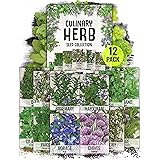Lazzmonk 2 Pack Raised Garden Bed Planter Box with Trellis, 58”Tomato Planter with Trellis for Climbing Plants Vegetables Vine Flowers, Self-Watering Tomato Cage for Garden Patio Outdoor & Indoor
$37.99 (as of 13:40 GMT -05:00 - More infoProduct prices and availability are accurate as of the date/time indicated and are subject to change. Any price and availability information displayed on [relevant Amazon Site(s), as applicable] at the time of purchase will apply to the purchase of this product.)Quictent Raised Garden Bed with Cover Outdoor Galvanized Metal Planter Box Kit, w/ 2 Large Screen Windows Mini Greenhouse 20pcs T Tags 1 Pair of Gloves Included for Growing Vegetables 6x3x1ft (Clear)
13% OffComposting is a great way to reduce waste and create nutrient-rich soil for your garden. It can be intimidating to start, but with the right information, anyone can become a successful composter. In this guide, we will cover everything you need to know about how to start composting at home.
What is Composting and Why Should You Start?
Composting is the process of breaking down organic matter into a rich, nutritious soil amendment that can be used in gardens and landscapes. By composting food scraps, yard trimmings, and other organic materials, you are reducing the amount of waste sent to landfills and creating a valuable resource for your garden.
The Basics of Starting Your Own Compost Pile
To get started with composting, you will need three things: brown material (such as leaves or shredded paper), green material (such as fruit and vegetable scraps), and water. Mix these ingredients together in a pile or bin, and let nature take its course. Here are some tips for starting your own compost pile:
1. Choose the right location – Select an area that is easily accessible and has good drainage. If possible, choose a spot that receives sunlight throughout the day.
2. Size matters – The size of your compost pile should be based on the amount of material you generate. For most households, a pile around 3 feet by 3 feet by 3 feet is ideal.

3. Balance is key – Make sure to balance the ratio of browns to greens in your pile. Too much green material can cause excess moisture, while too much brown material can slow down the decomposition process.
4. Turn it over – Aeration is important for healthy composting. Use a pitchfork or other tool to turn over the pile regularly to introduce oxygen and encourage microbial activity.
Tips for Maintaining a Healthy Compost Pile
Once you have established your compost pile, there are several ways to ensure that it remains healthy and productive. Some tips include:
1. Keep it moist – Compost needs to stay wet enough to support microbial growth, but not soaked. Water the pile occasionally if needed.
2. Add new material often – Continuously adding fresh material helps maintain airflow and encourages beneficial bacteria.
3. Stir it up – As mentioned earlier, turning over the pile introduces oxygen and keeps the pile active.
4. Monitor temperature – Ideally, the internal temperature of the pile should reach between 130°F and 160°F to promote rapid decomposition.
Common Mistakes to Avoid When Composting
While composting is relatively simple, there are some common mistakes that can hinder the process. Here are a few to watch out for:
1. Overwatering – Too much water can lead to mold and fungus growth, which can slow down the breakdown process.
2. Not mixing properly – Failing to mix browns and greens correctly can result in uneven decomposition rates.
3. Adding meat or dairy products – These items can attract rodents and cause odors.
4. Neglecting the pile – Without regular attention, the pile may become stagnant and unproductive.
How to Use Your Homemade Compost in the Garden
Once your compost has fully decomposed, you can use it in your garden to improve soil health and boost plant growth. Here are some tips for using homemade compost:
1. Spread it thinly – Applying too much compost at once can disrupt the balance of nutrients in the soil.
2. Mix it in well – Work the compost into the top layer of soil to allow plants to benefit from its nutrients.
3. Use it sparingly – While compost is a valuable resource, it should only make up a portion of your soil mixture.
FAQs About Composting at Home
Here are answers to some frequently asked questions about composting at home:
1. What kind of container do I need for my compost pile? Any type of enclosure will work, including wire fencing, wooden pallets, or plastic containers. Just make sure it is large enough to accommodate the volume of material you plan to add.
2. How long does it take for compost to decompose? Depending on factors such as climate, composition, and maintenance, compost can take anywhere from six months to two years to fully decompose. However, with proper care, you can speed up the process significantly.
3. Can I compost during winter? Yes! Composting can occur year-round, although colder temperatures may slow down the process somewhat. Simply continue to add fresh material and monitor the pile as usual.
Related Content
- Cornell Cooperative Offers Food Scrap Bins for Compost Program, – WICZ
- City of Troy receives $88k grant for composting pilot program – NEWS10 ABC
- Some Engineering Aspects of High-Rate Composting
- Gardening: Expert shares ‘essential’ tips on ‘composting’ in January | Express.co.uk
- Tips To Make You A Better Gardener















































